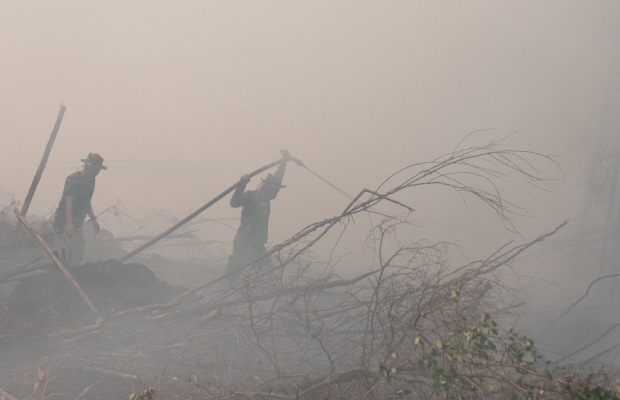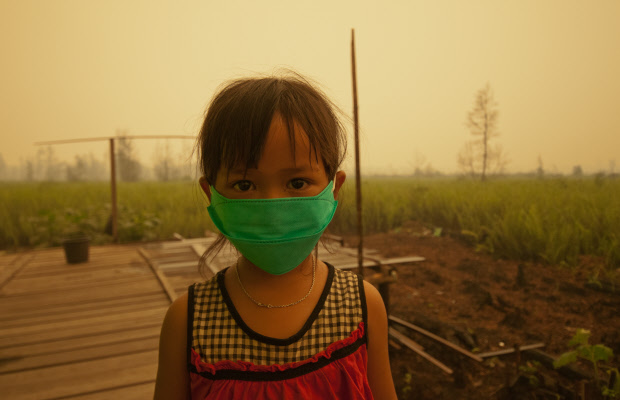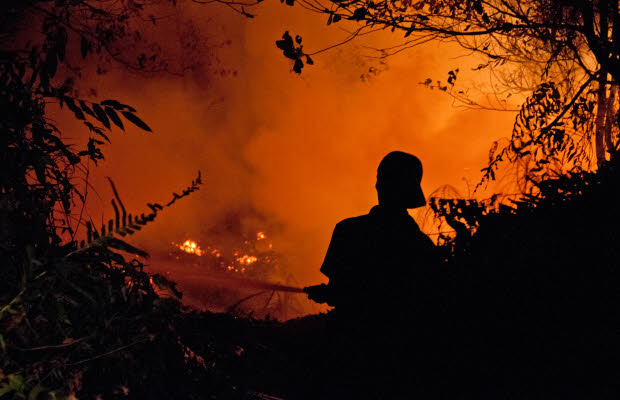
In 2015 the thick smog blanketing much of Southeast Asia has been at the worst levels in a decade. Having persisted for months it has reached as north as the islands of Samui and Phuket in Thailand and disrupted air traffic in its path (on a record day 50 flights were cancelled in Thailand), turning into a crisis that cannot be taken lightly. The resulting effects are: respiratory illnesses, displacement of people, food production issues, business disruptions, land degradation, climate impact, political turmoil, and upset in international relations.
ScandAsia made a survey among our readers, targeting those residing in Singapore, the country which has perhaps been worst affected this time. How are people and companies addressing the situation? Are they just coping with it and doing their best to stay away from the polluted air? Have people temporarily moved elsewhere, and are companies perhaps even relocating as a consequence?
Here is the feedback from a diverse selection of Scandinavians residing in Singapore.
Fabien Dhulst, Head of Risk and Compliance at IKEA Singapore | Malaysia | Thailand
IKEA employs in excess of 1,500 people in Malaysia and Singapore.
“We have been experiencing heavy haze in Singapore and Malaysia since June. This is a recurring problem in Southeast Asia. It has been reported that the 2015 crisis is the worst on record – and there is no way to confirm when we will be back to normal.”
On measures taken: They have stocked up on highest-quality face masks, replaced all their air conditioning systems with high-efficiency filters, minimized external air intake into their buildings and have switched on all exhaust fans. IKEA continually monitors “PSI Readings” to find out the level of pollution in the air. When the PSI readings reach the “very unhealthy” range (201-300), they:
• Hand out N95 face masks to all outdoor co-workers (those working in loading bays, primarily.)
• Provide outdoor co-workers with hourly breaks.
• Organize rotational shifts if needed.
• Re-deploy co-workers with any medical conditions to indoor jobs that are less physically strenuous.
The public is always welcome to take refugee as customers of IKEA: “Many people in our communities do not enjoy air conditioning at home. Our IKEA stores are a safe place to escape the pollution outside, and we are committed to keeping our doors open so we can offer customers a great day out – no matter what the weather is like outside.”
“We will continue to operate as we have, ensuring the safety of our outdoor co-workers. If the levels were to reach more extreme levels, we would get together our Crisis Management Team and consider taking other actions – such as allowing some people to work from home or making operational changes to minimize outdoor work.”
“While it is deeply concerning for all of us, our business has remained stable throughout this challenging period, and we expect it will continue to do so in the long term,” Fabien comments on their long-term view on the business impact. “The haze has become a routine irritant in Southeast Asia and people are carrying on with their routines.”

Susann Johansson
Susann lives in Singapore since 2001, with her husband, who works for an American company, and their two children.
She has taken measures and wrote: “I have booked flight to Sweden to get out of the haze!”
Furthermore: “We have bought 3 air purifiers and we are talking about moving out of Singapore if this persists.”
Bo Johansson, Viking Engineering Pte Ltd
Viking Engineering has over 200 employees in Singapore and Batam (Indonesia) combined.
“I have taken no steps other than individual members wearing respirators voluntarily.”
Bo has also not considered relocating.
How to cope with this if it keeps impacting your business here: “Keep on complaining and encouraging authorities to deal with the culprits.”
Bo Steiber at Bo Steiber Lighting Design
“I am going to Phuket as often as possible but the haze followed me there,” was Bo’s measure. He has not considered relocating.
“I just live with it and hope it will eventually stop.”

Fredrik Lager, SEB Private Banking, Singapore
SEB Private Banking in Singapore employs 13 people. At SEB as a whole in Singapore (including our corporate business), they are about 100 employees in total.
“The air quality inside the office is good. We have, however, considered buying air purifiers if the haze persists/intensifies. All employees have been given masks for outdoor use. We have also said that if anyone is suffering particularly badly due to asthma or other chronic respiratory decease, then working from home is always an option.”
Relocating their business is not possible.
“For our business (private banking) we are licensed here in Singapore, so it is difficult to just “close shop” and relocate.
“However, some staff members have relocated their families short-term until the pollution levels go down.”
“Going forward, if we will continue to experience hazardous levels of haze for prolonged periods each year, we have to do something. Perhaps not so much in terms of our business, but more to protect our kids from exposure, which in turn could mean relocating our families for longer periods of time. That would have an indirect impact on our business since we would want to visit them regularly, thus giving us less time in Singapore to do business.”

